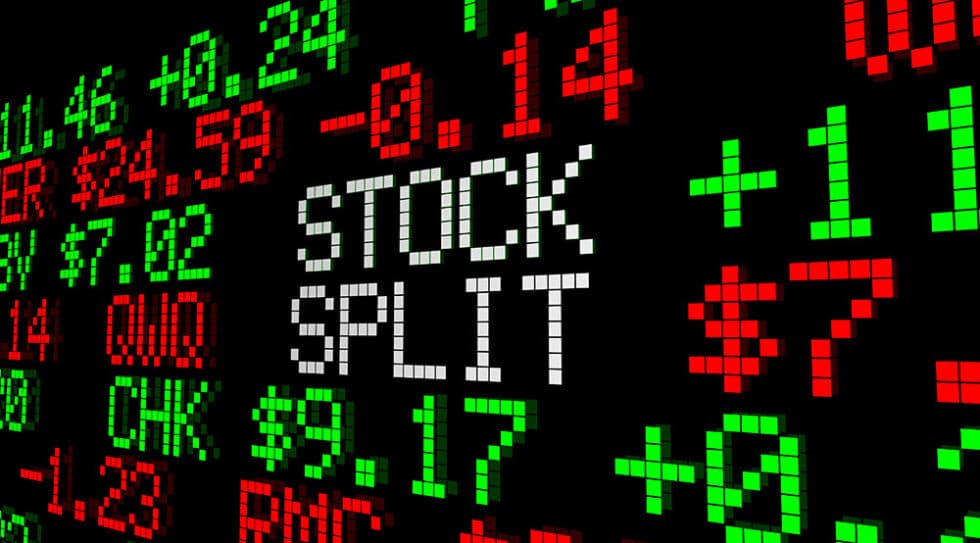Everyone would like something for nothing but, unfortunately, this seldom happens. However, many investors are under the misconception that when a company splits its stock or announces a stock dividend, shareholders receive something for nothing. Another widely held notion is that a stock split signals an imminent and dramatic rise in the price of the stock. While it’s conceivable that this might occur, more often than not, nothing of the sort takes place.
A stock split simply is the dividing of a company’s outstanding common shares into a larger number of shares. So, for example, a company could issue you two, three, four or more shares for every one you currently own. This sounds pretty lucrative until you learn, for example, two shares, each of which is worth $30, have replaced the $60 share you formerly owned.
There are several reasons why a company’s board of directors may decide to split the firm’s stocks. For example, this may happen if the price of a stock is so high that individual investors seem to have lost interest in it and have stopped buying it. For some psychological reason, investors seem to prefer cheaper shares. Thus, a stock trading at $50 generally will attract far more investors than one selling at $100.
What about stock dividends? Again, these dividends don’t represent a gift of something for nothing. They are dividends paid in common shares, rather than cash; also, they may be paid to shareholders in lieu of a regular cash dividend.
A company’s board of directors may decide to declare a stock dividend when it wants to conserve cash yet allow shareholders to benefit from the firm’s higher earnings. If you own 100 shares of a company that declared a ten percent stock dividend, you will receive a certificate for 110 shares. Following the dividend declaration, the market will adjust the trading price of the company shares accordingly.
So, for example, if the original cost basis (the original cost plus commissions and/or other trading costs) of the shares was $10 per share, your 10 shares now have a cost basis of $1,000 divided by 110, or $9.09 per share. Keep in mind that you don’t pay taxes on stock dividends until you sell the shares, and then only if you have capital gain.
Clearly, although the price of the individual share has declined, the stock dividend may benefit you by providing you with more shares on which to collect possible future cash dividends.
So, while stock splits and stock dividends don’t represent “something for nothing,” they may provide an added enhancement for your personal investment portfolio. Consult you Financial Advisor about how these corporate board decisions may affect your current or future investment choices.
Helping You Build a Firm Financial Foundation For Your Future
Nico F. March is the Managing Director for The March Group, LLC. He has worked with Community Associations since 1974 and has served on several Boards, including the Board of Directors for the Community Association Institute (CAI), San Diego Chapter. His team has specialized in Corporate Cash and Association Financial Management since 1982 and has assisted over 1000 Associations, Nonprofits and Timeshares invest over $4 Billion in reserve, operating and reconstruction funds. Nico and his team work out of their San Diego and Wyoming offices and may be reached at 888.811.6501 or email [email protected] for further information and consultations.
The March Group is not a tax or legal advisor. We will be glad to work with your professional CPA and Attorney to help you with your financial goals. Neither the information contained herein nor any opinion expressed shall be construed to constitute an offer to sell or a solicitation to buy any securities mentioned herein. Securities offered through LPL Financial, Member FINRA/SIPC.
Content in this material is for general information only and is not intended to provide specific advice or recommendations for any individual. Dividend payments are not guaranteed and may be reduced or eliminated any time by the company.
LPL-App1-05109723



